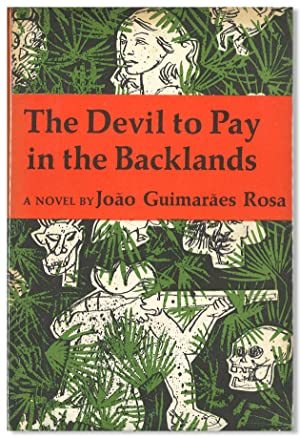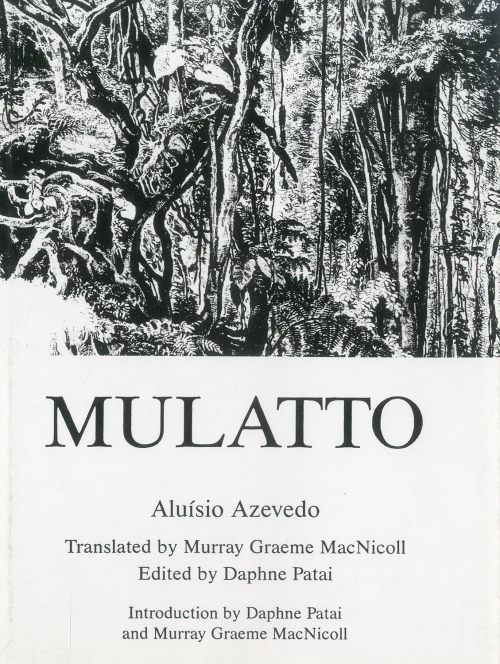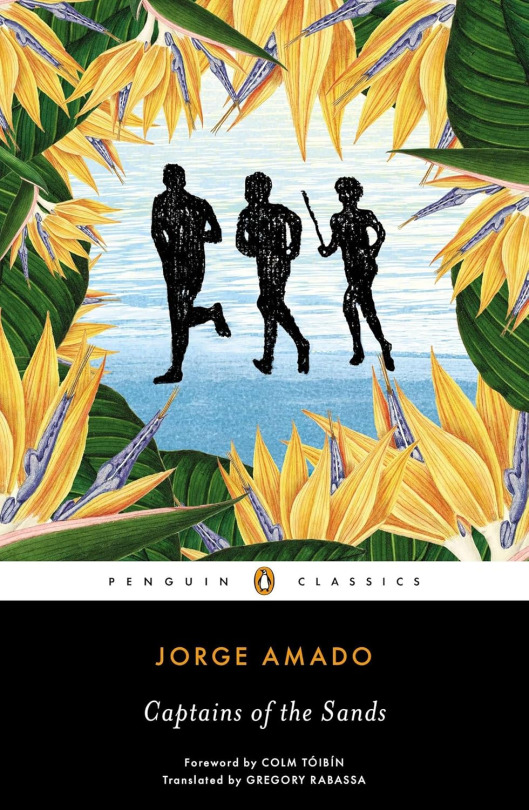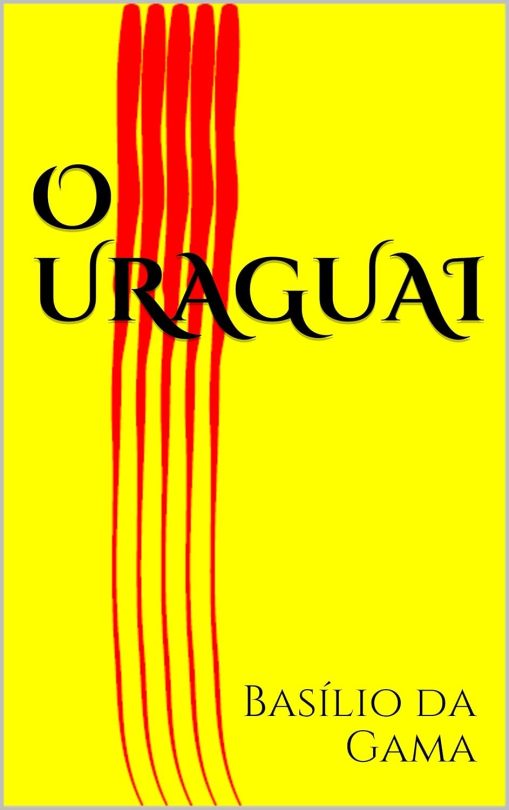Surreal Adventures
Surreal Adventures

"john c.: Three hundred miles, Chico? chico: Three hundred miles. I had ridden that far on my horse. All because he had been blessed. john c.: But, Chico, how did you cross the San Francisco River, that never runs dry? chico: There you go again, John, with your mania for asking questions. john c.: Of course I want to know: How did you get across? chico: I don’t know. All I know is, that’s the way it was."
About the Book
Title: The Rogue’s Trial Author: Ariano Suassuna Published: 1955 Original Title: Auto da Compadecida
Summary
The Rogue's Trial is a comedic play that blends religious satire and Brazilian folklore. It follows João Grilo (Cricket) and Chicó, two men living in the Brazilian Northeast. The book is surreal and explores a range of themes, including morality, class struggles, and survival.
P.S. Satan is hilarious. Also, go watch the movie with the amazing Fernanda Montenegro.
Key Themes
Comedy
Faith
Redemption
Regional Identity
More Posts from Carnivalofstories and Others
What is sanity?

“Were they all really insane? Did I really cure them? Or is not mental imbalance so natural and inherent that it was bound to assert itself with or without my help?”
About the Book
Title: The Alienist Author: Machado de Assis Published: 1882 Original Title: O Alienista
Summary
Dr. Simão Bacamarte is a brilliant but obsessive physician that made his life mission the study of mental illnesses in the small town of Itaguaí. Convinced he know how to determine who is sane and who is insane, the doctor begins commiting patients based on a rigid and weird criteria. Too emotional? Locked up. Too rational? also locked up.
This book is a mix of satire, irony, and existential dread. Who gets to decide what is insane? What is sanity? Machado de Assis challenges the reader to question everything about reason, while also critiquing the medicalization of traits that, in his time, were considered mental illness (like hysteria).
Key Themes
Science vs Humanity
Satire
Power
Madness vs Reason
Journey Through the Backlands

"Did that make sense? But he was neither crazy nor worried, nor ready for hanging. Even when a capybara sits, it does so to think, not to lose heart."
About the Book
Title: The Devil to Pay in the Backlands Author: João Guimarães Rosa Published: 1956 Original Title: Grande Sertão: Veredas
Summary
The Devil to Pay in the Backlands blends mysticism, philosophy, and the reality of Brazilian life in the arid Northeast. The narrator, Riobaldo, is a former jagunço who recounts his journey through the backlands.
Key Themes
Good vs. Evil
Destiny
Violence
Searching for meaning
Racial Inequality and love

"On a sultry and oppressive day, the decadent city of Sao Luis Maranhao lay sprawled in the tropical heat."
About the Book
Title: Mulatto Author: Aluísio Azevedo Published: 1881 Original Title: O Mulato
Summary
The book addresses racial inequality in 19th-century Brazil. It was one of the first novels to discuss miscegenation and its cultural and social effects.
Mulatto follows the story of Raimundo, a young mulatto man who seeks to rise in society. Things get complicated when he falls in love with Rosa, a white aristocratic woman. Their forbidden love faces intense social opposition, leading to a tragic conflict where race, class, and desire collide.
Key Themes
Racial inequality
Social class
Colonial Brazil
A true story

"It is truly regrettable that in these times we do not have a Maudsley, who knew the difference between good sense and insanity, to prevent nations from committing acts of madness and crimes against humanity."
About the Book
Title: Backlands: The Canudos Campaign or Rebellion in the Backlands Author: Euclides da Cunha Published: 1902 Original Title: Os Sertões
Summary
This book is a retelling of the War of Canudos (1896–1897), which took place in the state of Bahia. The writer, Euclides da Cunha, was a correspondent for the Brazilian newspaper O Estado de S. Paulo. It is considered the first livro-reportagem (reportage book) in Brazil. Mixing science and literature, the story narrates the war between the republican army and the sertanejos.
Key Themes
True story
Resistence
War
Brazilian backlands
This book was burned during the military dictatorship

"In the mysterious night of the macumbas the drums resound like trumpets of war."
About the Book
Title: Captains of the Sand Author: Jorge Amado Published: 1937 Original Title: Capitães da Areia
Summary
Captains of the Sand is set in the city of Salvador and follows the story of a group of orphaned boys living on the streets. They survive through petty theft and share a deep sense of brotherhood. Their leader is Pedro Bala, a boy who is protective of his gang.
The book was banned during the Brazilian military dictatorship for its portrayal of poverty and its perceived communist ideas. It was even burned in a public square in November of 1937, alongside other books (mostly from Jorge Amado).
P.S. There are many things you will not agree with in the book, and it contains an explicit rape scene.
Key Themes
Poverty
Injustice
Social Exclusion
Survival
Three Girls, Three Fates

"Perhaps love for death is like love for a man, and she is satisfied, is consoled, and is cured only after being possessed and exhausted."
About the Book
Title: The Three Marias Author: Rachel de Queiroz Published: 1963 Original Title: As Três Marias
Summary
This novel follows the lives of three friends—Maria Augusta, Maria da Glória, and Maria José—who meet at a Catholic boarding school. Life takes them in different directions, shaped by societal expectations, love, and family. The narrator, Maria Augusta, struggles to fit into the role that society imposes on her.
Key Themes
Coming of age
Religion
Love
Gender Roles
Expectations
Friendship
The Art of Getting Away with Everything

"The boy, while he was new in his godfather’s house, comported himself with the utmost circumspection and gravity. As soon as he started feeling at home, however, the gloves came back off."
About the Book
Title: Memoirs of a Militia Sergeant Author: Manuel Antônio De Almeida Published: 1852 Original Title: Memórias de um Sargento de Milícias
Summary
This is the only book written by Manuel Antônio de Almeida.
The novel tells the story of a troublesome child named Leonardo, who grows into a reckless young man and a trickster, constantly finding himself in trouble. It’s a very funny story, full of twists as Leonardo tries to dodge his responsibilities. Nothing in Memoirs of a Militia Sergeant is idealized or tragic. Seriously, the ending is amazing.
Key Themes
Comedy
Antihero
Social mobility
Love
City of God

"It was kite-flying time in City of God."
About the Book
Title: City of God Author: Paulo Lins Published: 1997 Original Title: Cidade de Deus
Summary
If you’ve ever heard of the Brazilian movie City of God, you already have an idea of how the story unfolds. The novel follows the lives of the residents of Rio de Janeiro’s most notorious favela, offering a glimpse into the harsh reality of poverty.
Key Themes
Crime
Violence
Drug Trafficking
Social Inequality
The Guaraní War

"Still reek outstretching o’er the desert strands Lakes of man’s life-tide tepid and impure Where float the fragments of the unsheeted dead Baiting the vulture. Volley still the vales With hoarse artillery bellowing horrid sound. Muse! do we honour to the Brave who tamed Uruguay’s rugged brood, and in its blood Washed out the affronting of his King’s decrees. Aye me! Thou lust of Empire, such thy cost!"
About the Book
Title: The Uruguay Author: José Basílio da Gama Published: 1769 Original Title: O Uraguai
Summary
This epic poem tells the story of the end of the Guaraní War (1754-1756), focusing on the enslavement of the Guaraní people under the control of the Jesuits (Society of Jesus). Set in Rio Grande do Sul, it offers a critical perspective on the conflict and the power dynamics at play.
The poem is divided into five cantos, following a style inspired by The Lusiads by Luís Vaz de Camões.
P.S. In English, the book is titled The Uruguay because the story is set along the Uruguay River in Rio Grande do Sul. Also, Uraguai with an "a" might have been a poetic choice by the author.
Key Themes
Colonialism
Power and War
Religion and Slavery
Two Husbands, One Ghost

"BRIEF REPORT (APPARENTLY UNCALLED FOR) OF THE CONTROVERSY THAT SPRANG UP CONCERNING THE AUTHORSHIP OF THE ANONYMOUS POEM THAT CIRCULATED FROM TAVERN TO TAVERN, IN WHICH THE POET LAMENTED THE DEATH OF V ADINHO, WITH THE TRUE IDENTITY OF THE UNKNOWN BARD, FINALLY REVEALED ON THE BASIS OF CONCRETE PROOFS"
About the Book
Title: Dona Flor and Her Two Husbands Author: Jorge Amado Published: 1966 Original Title: Dona Flor e Seus Dois Maridos
Summary
Dona Flor becomes a widow after the death of her reckless and charming husband, Vadinho. Later, she remarries Dr. Teodoro, a respectable and stable man. However, things take an unexpected turn when Vadinho returns as a ghost, forcing her to navigate between her two very different husbands. The novel is a satirical and playful exploration of passion, reason, and desire.
P.S. There’s a famous movie adaptation from 1976, and it was also adapted into a novela!
Key Themes
Desire
Morality vs. Passion
Supernatural elements
Female Independence

Celebrating Brazilian stories through book recommendations
22 posts